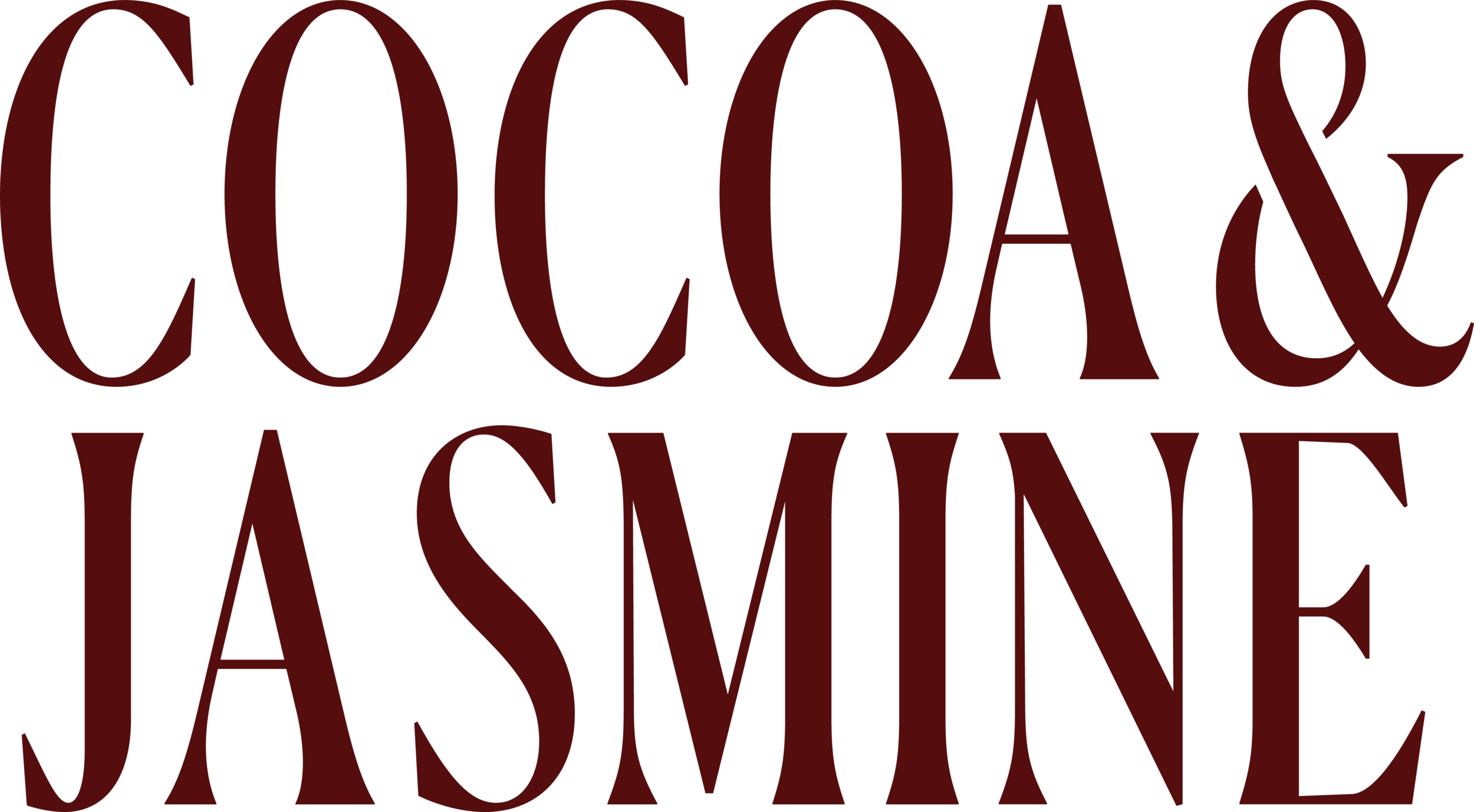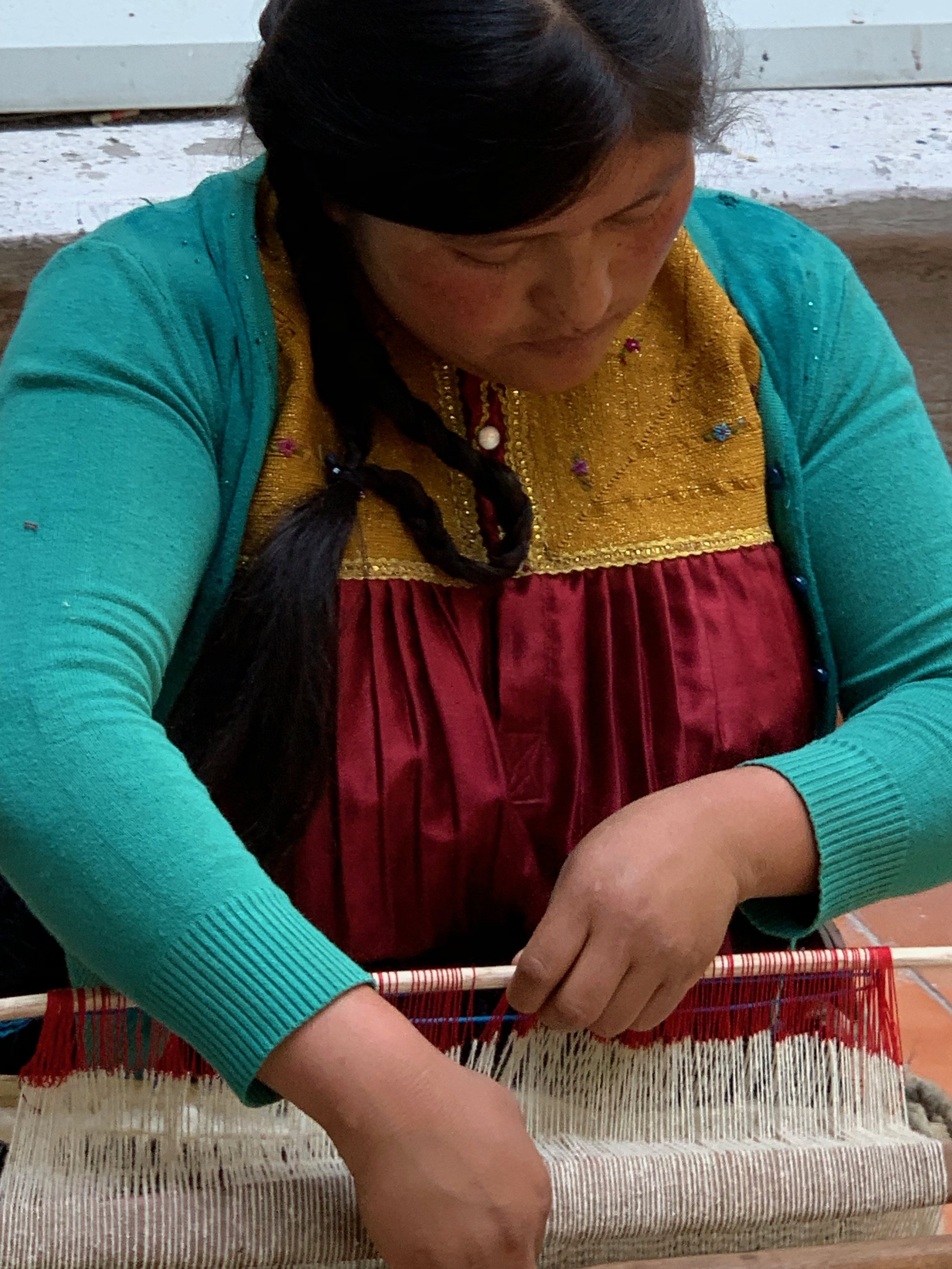In Conversation with Textile Curator Kavita Parmar
Kavita Parmar is the Founder and Creative Director of The IOWEYOU Project focused on producing unique, handmade apparel based on handwoven fabrics from India as well as the Curator of XTANT that brings the best of the world textile makers under one roof. Her understanding of traditional textiles with a cultural context makes her practice unique and exciting at the same time. We had the pleasure to speak to her and understand her thought process on textiles from Mexico and India.
When did you know that textiles will be the driving energy in your life?
Textiles found me or that is what it looks like when I turn back and connect the dots. I ran away from home right after high school not coming to terms with my parents' expectations for my future. I didn’t know exactly what I wanted to do but being a doctor was definitely not it. I had studied biology, as expected of me and even managed to get high enough grades in high school to technically apply for med school but having finished high school at 16 saved me as I could not sit for my Pre Med exams till I was 17 which meant I had time on my hands.
I decided to take a summer job against my parents wishes and the first job that I got was working for a French woman who helped brands and retailers source products from South-East Asia.Fashion was of no interest to me and I quite frankly looked down upon the professional as something quite banal ( I as most 16 year olds was dreaming of being like Che Guevara then).
I will never forget the first time I went to visit a handloom weaver at their home with a designer. To see someone create out of what seemed to me like nothing, just some yarns and a very rudimentary loom, this incredibly beautiful textile based on just a simple drawing had me hooked. It was like a 3D printer.
I was lucky enough to work with some incredibly talented artisans in those first years, to see the beauty created with such skill in the most humble of places was magical. That sense of awe has just grown over the years as I have had the luck to travel all over the world in search of heritage textile masters.
The IOWEYOU Project is Unique in the way it uses technology to connect buyers with the clothes and the ones who made them.
Can you tell how this journey started? What were your inspirations behind this project ?
I had my own buying agency based in Hong Kong ( sourcing for brands and retailers from the Far East ) and then took the license for a well known American brand for India and opened stores there.
Early in 2000 I sold my company in Hong kong and moved to Spain and started my own brands RAASTA and SUZIE WONG. The timing was perfect as Spain had just joined the EU and the market was growing. With my experience in Sourcing we managed to get exquisite fabrics from all over the globe and produced the pieces in Spain and Portugal. By 2008 we were selling in over 300 Multi brand stores ( like Barney´s, Bergdorf Goodman, Nordstroms, Galeries Lafayette etc.) and I could see online shops like Net-a-Porter already beating traditional retail. We decided to open our own Flagship Store in Madrid in an old carriage building where the customer could see the entire process, design , product development and the final pieces hanging. I felt the back story of how things were made was very important for the customer to value the final piece.
2009 was a very hard year as the BIG crash of 2008 really got to our industry and everyone was holding up Fast Fashion as the beacon for the future. I was pushed by my own colleagues and retailers to start a second cheaper line. I was being repeatedly told I had so much experience in the Far East that I should take advantage of it.It was also an emotional time for me as my mother passed that year and I had to go back to India for a few months.
I was conflicted about starting the second cheaper line as I had seen through the entire outsourcing of our industry, I saw the impact faster and cheaper had on entire communities and the skill degradation that was happening in countries like India. It's true the factory workers get paid more than the average artisan but their quality of life was much worse. Living hundreds of kilometres away from their families and working inhuman hours did not seem like progress to me.
That trip I found My Experiments with Truth by Gandhi again and reread it. It felt like a sign and I decided to follow my instinct and not make a cheaper collection. I spoke to my husband who is in the tech industry and we worked together to create the IOWEYOU Project traceability platform.
Can you explain how IOWEYOU traceability works in a few words?
Well, the idea was that just by scanning a QR code you could see everyone involved in making that piece from the former, to the weaver to the tailor, the entire human supply chain. We built the platform with open source technology and approached every single luxury brand. I had a good relationship to offer them the Traceability service.
To my surprise not a single of those brands thought it was a good idea as they did not want to “share their Artisans”. This very old fashioned feudalistic approach shocked me as I had naively believed that at least the luxury brands in our industry wanted to celebrate the artisan.
Not being one to take NO for an answer easily, I decided to make our own brand which would have Traceability and Artisan authorship as its core values. I also wanted to make the product mainstream so it isn’t scoffed at as another artisan project for the elite niche.
What were your early projects? How do you connect to textiles as an object of cultural representation ?
The ubiquitous Madras check, the lungi, had always fascinated me. This very humble simple fabric that gets better with use and age. I also had come in contact with COOPTEX one of the oldest and largest weaving Cooperatives in India. I went to Pondicherry and spent 2 months living there meeting with different weaving clusters, to explain our project and to understand their way of working and needs.
We launched The IOWEYOU Project in 2011 with a simple unisex collection all made in Europe with Unique hand woven Madras checks bought directly from the weavers. We documented 253 madras weavers by making videos on them, got them their own bank accounts and created their online profiles. Each lungi would travel to Spain with the unique weaver code to make sure we could trace it back.
It has taken many turns since you first started, so tell us where are you now ?
We got a lot of attention and won many awards for the project and since then I have been making an IOWEYOU collection adding new artisan groups from around the world.
IOWEYOU was never conceived as a brand as I had already created 2 brands prior to this and that wasn’t the intellectual challenge that excited me. I always thought of it more as a re-education project.
What have been your biggest takeaways from this journey?
Working with artisan communities I have realized that we are facing a mass extinction of master artisan skills around the globe. Our industry had made the faster and cheaper such a huge focus that even the luxury brands were only interested in the quick visual impact and not the promotion of deep know-how that takes generations to build. Social media and its frenzied timelines made it even worse as it was all about fast content creation and not long term investing.
Having worked as a consultant for major companies ( Levis, Nike, Ikea etc) and NGOs and some government bodies, I feel the urgency to bring together like minded individuals I have come across around the globe into a community and that is also how XTANT was born.
Can you tell us more about XTANT?
It started as an idea with my dear friend Marcella Echavarria who has had a similar career path as mine but more focussed in South America, in 2018 to create a community around master artisans whom we could help transfer knowledge and skill to the next generation and has now grown into a much larger and ambitious project.
We create an intense, exciting physical event, a global gathering to bring the tribe together to share, to connect , to reinforce and to be inspired. We have had two already, in Mexico city in 2020 and in Mallorca in 2021.
That’s amazing. So what do you envision from here on? How do you see Indian Textiles going forward?
We have started helping master artisans / artists create and sell their work as ART. We felt that giving authorship and helping tell their stories by putting the maestros' work in the art world will help inspire the next generation to invest in continuation of this know-how. We took the first EDIT to ART BASEL this September.
We are also working on creating an Academy / University inspired by the vision of great minds like Rabindra Nath Tagore to give structure to this heritage know-how. Especially at this moment in time when we are going through this leap in innovation, we cannot move forward without carefully ensuring that we don’t leave what being human means behind.
Textiles are the oldest form we humans have used to pass on our myths and knowledge , older than writing, it is important that this not be lost in the name of speed and innovation.
India is experiencing an exciting moment where there is an awakening to our unique situation of being the guardians of large scale handmade skills thanks to the founding principles of Swaraj or self-reliance.
We hopefully don’t want to replicate the China model but write our own future which celebrates and builds upon these skills and leaves no one behind. That is what I and a lot of my colleagues in India are working towards.
Gandhi’s quote on the Khadi Spirit sums it up for me :
¨ If we have the ¨khadi spirit¨ in us, we would surround ourselves with simplicity in every walk of life. The ¨khadi spirit¨ means illimitable patience.
For those who know anything about the production of khadi, know how patiently the spinners and the weavers have to toil at their trade, and even so must we have patience while we are spinning¨ the thread of swaraj ¨.
The “khadi spirit” also means an equally illimitable faith. Even as the spinner toiling away at the yarn he spins by itself small enough, put in aggregate, would be enough to cloth every human being in India, so must we have illimitable faith in truth and non-violence ultimately conquering every obstacle in our way.
The “khadi spirit¨ means fellow - feeling with every human being on earth. It means complete renunciation of everything that is likely to harm our fellow creatures, and if we cultivate that spirit amongst the millions of our countrymen, what a land this India of ours would be!
And the more I move about the country and the more I see the things for myself, the richer, the stronger is my faith growing in the capacity of the spinning wheel¨
https://ioweyou.cc/
https://www.xtant.io/









